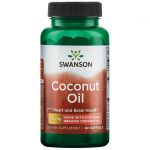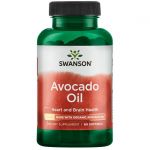Being afraid of high-fat foods?
Many people believe that the amount of fats they consume is directly related to the amount of fats accumulated by their body. Here are some facts to change what you have believed up to now.
One gram of fats contains much more calories than one gram of proteins or carbohydrates. Indeed, this is true. However, we should know that fats serve as a protective wrapping to some organs. Such for instance, is the brain and this is of crucial importance for its health.
The only bad fats are the trans-fats causing artery clogging. If you know that fats contain more calories per gram, you will be able to adapt more easily the amount and type of foods that you consume in such a manner as to avoid gaining any weight.
Which are the fat-rich foods that are good for us?
Most people try to reduce the intake of saturated fats, as it is commonly known that some of them create greater risk of developing cardiovascular diseases. We should know however, that not all fats are alike. Some of them are healthy. They even include some saturated fats. Usually fats that are beneficial to human health are found in some plants and fish: these are the monounsaturated fat, polyunsaturated fat, omega-3 and omega-6 fatty acids.
And while it is advisable to avoid foods with "bad" fats, you can take care of your health by insisting on "healthy" fats, in moderate amounts, of course.
Fat-rich healthy foods
.jpg) 1. Avocado
1. Avocado
Avocado is a great natural source of monounsaturated fats, helping to lower cholesterol levels. In addition, this fruit enhances the absorption of some carotenoids - substances stimulating cardiac and eye health. Avocado is a natural source of soluble fibres, vitamin E, folic acid and potassium.
Avocado - nutrient profile:
(in 30 grams)
Calories: 50
Total fats: 4.5 g
Saturated fats: 0.5 g
Polyunsaturated fats: 0.5 g
Monounsaturated fats: 3 g
Fibres: 2 g
.jpg) 2. Peanuts and peanut butter
2. Peanuts and peanut butter
Peanuts and peanut butter are a natural source of monounsaturated fats enhancing cardiac health. Research shows that peanut consumption lowers the risk of developing cardiovascular diseases. They also provide beta-sitosterol - a substance that helps keep cholesterol levels within healthy limits.
Those who adore peanuts and peanut butter should be aware that these products have higher calorie content. 30 grams of peanuts equal 166 calories, and one tablespoon of peanut butter - 94 calories. And yet, there is some good news, too. It is proven that regular peanut eaters have a lower body mass index than people who never eat peanuts
Be creative! You can sprinkle your veggie or fruit salad with some crushed peanuts, or add them to your shakes.
Peanuts - nutrient profile
(In 30 grams)
Calories: 166
Total fats: 14 g
Saturated fats: 2 g
Polyunsaturated fats: 4 g
Monounsaturated fats: 7 g
Fibres: 2 g
Peanut butter- nutrient profile:
(in 1 tablespoon)
Calories: 94
Total fats: 8 g
Saturated fats: 2 g
Polyunsaturated fats: 2 g
Monounsaturated fats: 4 g
Fibres: 1 g
.jpg) 3. Olives and olive oil
3. Olives and olive oil
Olives are one of the most abundant natural sources of healthy monounsaturated fats - the fats helping reduce the total and bad cholesterol content in our body. Moreover, olives supply phytochemicals such as polyphenols. These protective compounds are rather beneficial to your health, including to the good condition of the cardiovascular system.
In addition to regularly buying different olive varieties from the store, you can make olive oil your primary cooking oil. It has all the health benefits of olives. Preliminary research shows that two tablespoons of olive oil daily may reduce the risk of developing coronary heart disease. When you go shopping, choose the extra virgin olive oil, as it contains the greatest amount of phenolic compounds
Olives - nutrient profile
In 5 big olives:
Calories: 25
Total fats: 2.35 g
Saturated fats: 0.75 g
Polyunsaturated fats: 0.2 g
Monounsaturated fats: 1.74 g
Fibres <1 g
Olive oil - nutrient profile:
In 2 tablespoons:
Calories: 239
Total fats: 27 g
Saturated fats: 3.7 g
Polyunsaturated fats: 2.8 g
Monounsaturated fats: 19.7 g
Fibres: 0 g
.jpg) 4. Walnuts
4. Walnuts
In the "kingdom" of nuts walnut is the king, especially when it comes to the content of omega-3 fatty acids. Walnuts have the highest levels of essential fatty acids as compared to all other nuts. They are among the very few plant sources of healthy omega-3, which have numerous health benefits, including for the heart, joints and brain. A handful of walnuts supplies to the body 2.6 grams of omega-3 fatty acids, which exceeds the recommended minimum daily dose. In addition, walnut eating quickly eliminates hunger. You should see to have some handfuls of this amazing nut always at hand.
Walnuts - nutrient profile
In 1/4 cup
Calories: 196
Total fats: 20 g
Saturated fats: 2 g
Polyunsaturated fats: 14 g
Monounsaturated fats: 3 g
Fibres: 2 g
.jpg) 5. Soy nuts
5. Soy nuts
These nuts enjoy a special worship in Japan and Hawaii, and yet they gradually gain worldwide popularity as well. They are an incredible substitute for meat in your diet. Besides, they are a natural source of polyunsaturated fats supporting healthy cholesterol levels and enhancing good cardiovascular health.
A study published in March 2015 by the American Journal of Clinical Nutrition states that people who have replaced meat entirely with soy and who have added to their diet fibre-rich foods, almonds and plant sterol-containing margarine, have managed to reduce their cholesterol levels by one third more than the other participants in the study.
Nutrient profile of soy nuts:
In 1 cup:
Calories: 130
Total fats: 6 g
Saturated fats: 1 g
Polyunsaturated fats: 3 g
Monounsaturated fats: 2 g
Fiber: 6 g
.jpg) 6. Sunflower seeds
6. Sunflower seeds
Peeled sunflower seeds are nutritious and easy breakfast. А handful of them supplies the necessary amounts of linoleic acid, one of the indispensable fatty acids. You should be aware that this acid cannot be produced by our organism. The only way to obtain it is via food. Linoleic acid aids the synthesis of other fats and keeps good cardiac health. In one study, women who took more linoleic acid had a 23% lower risk of developing heart disease than women who took lower amounts. Sunflower seeds are also a natural source of vitamin E, a fat soluble antioxidant, maintaining the health of cell membranes, brain and heart.
Sunflower seeds
Nutrient profile in 1/4 cup
Calories: 207
Total fats: 19 g
Saturated fats: 2 g
Polyunsaturated fats: 13 g
Monounsaturated fats: 4 g
Fibres: 4 g
.jpg) 7. Coconut oil
7. Coconut oil
Although composed of saturated fats mainly, coconut oil is a healthy fat to rely on and indulge in. Saturated fats present in this oil consist of medium chain triglycerides, which are readily digested by the body and then transformed into energy.
Coconut oil is a great addition to your smoothie. You can also use it as a substitute for other types of oil when cooking or frying.
Nutrient profile of coconut oil
In 1 tablespoon
Calories: 130
Total fats: 14 g
Saturated fats: 13 g
Polyunsaturated fats: 0 g
Monounsaturated fats: 0 g
8. Flaxseed.jpg)
Known for its content of omega-3, flaxseed is yet another natural source of healthy fats. In addition, it contains alpha linolenic acid. This is an essential fatty acid proven to enhance the cardiovascular system health. Flaxseed is also a source of lignans - a type of fibres having some of the estrogen properties. With its pleasant taste, flaxseed is a good addition to pastry; it can also be added to the shakes that you make.
Flaxseed – nutrient profile
In 2 tablespoons
Calories: 75
Total fats: 6 g
Saturated fats: > 1 g
Polyunsaturated fats: 4 g
Monounsaturated fats: 1 g
Fibres: 4
.jpg) 9. Salmon
9. Salmon
Salmon is considered one of the best sources of healthy fats. It is also rich in omega-3 fatty acid. You can include it as a main dish on your menu or add it to the salads you make. Salmon is a great source of protein, it is also rich in phosphorus, potassium and selenium
Salmon – nutrient profile
Content in 90 grams
Calories: 155
Total fats: 7 g
Saturated fats: > 1 g
Polyunsaturated fats: 2.8 g
Monounsaturated fats: 2.3 g
Protein: 21.6 g
.jpg) 10. Almonds
10. Almonds
Beyond doubt, many of you like almonds, as they have amazing delicate flavor and can be easily added to almost any meal. But you should also know that they are rather beneficial for cardiovascular health. Almonds are a natural source of monounsaturated fat (the same fat making olive oil beneficial). A study of California University-Davis finds that those who consume almonds and almond oil have lower cholesterol levels, lower triglyceride levels, and higher levels of high density lipoprotein. Almonds are also rich in vitamin E, an antioxidant that is known for its benefits to the heart
Almonds - nutrient profile
In 1/3 cup
Callories: 271
Total fats: 23 g
Saturated fats: 2 g
Polyunsaturated fats: 6 g
Monounsaturated fats: 15 g
Fibres: 6 g














LEAVE A COMMENT :
Comments sort : Newest / Oldest / Most Upvoted